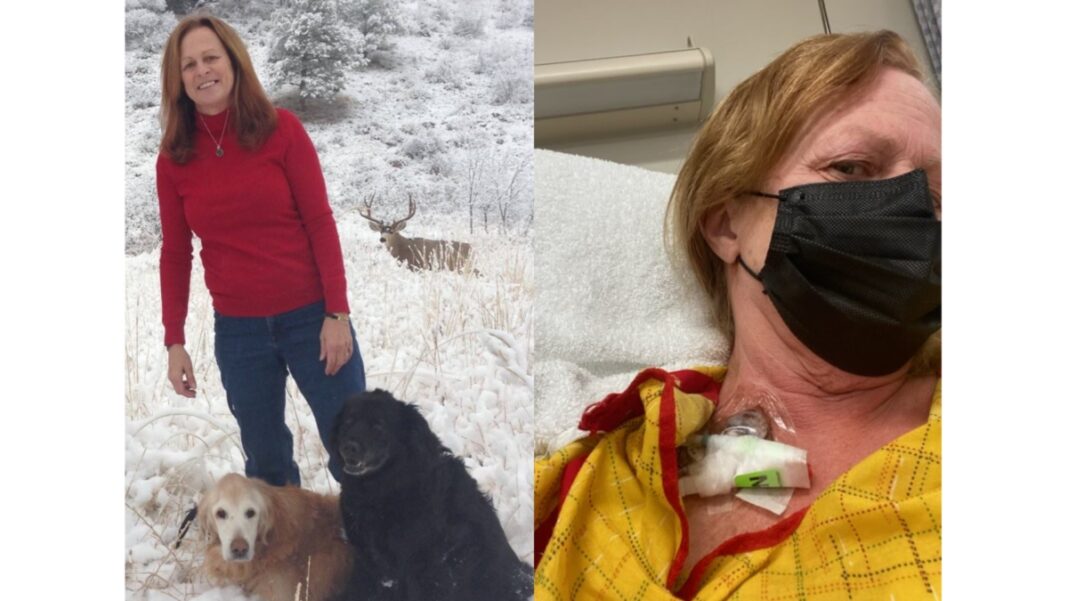On the morning of Jan. 15, 2022, Debbie Botzum-Pearman, who had been a strong healthy woman for 66 years, woke up paralyzed from the chest down.
On Sept. 13, 2022, nearly nine months later, she managed to stand up without assistance for 10 seconds. Since then, she has made a steady recovery. She has regained sensation in her thighs and taken her first steps with a walker. But, a long journey remains ahead of her.
Debbie’s symptoms appeared less than a month after her first Pfizer COVID-19 booster shot. She had taken the shot in mid-December and felt fine, the same as with her previous COVID-19 shots.
Looking back now, Debbie realized that leading up to her sudden paralysis, she had been feeling that her bra was getting too tight. This sensation is also called MS (multiple sclerosis) hug, and some people can experience these symptoms even without MS.
The first dominoes toppled on Jan. 14. She was finishing her painting work at her friend’s house when she realized that she could not pee despite having the urge to urinate.
“I was drinking water … could not pee, just could not pee,” she told The Epoch Times.
She got home that day and as she was walking up the stairs, her left leg gave out and she peed over herself.
She went to bed and on the following morning, Debbie was paralyzed from the chest down and rushed to urgent care.
“I probably had 15 MRIs and a spinal tap [at the hospital] … they came back [a few days later] with neuromyelitis [optica],” Debbie said.
“[Neuromyelitis] ate away, I don’t know, four or five inches [of my spinal cord on the MRI], which is repairing itself now.”
Neuromyelitis, scientifically known as neuromyelitis optica (NMO), is a rare condition affecting around 1 to 2 people out of 100,000 every year. The condition destroys the nerves in the central nervous system and the eyes, and can cause paralysis, weakness, and even blindness if not treated.
Onset of NMO is usually precipitated by a viral or bacterial infection such as Epstein-Barr virus (EBV) or bacterial meningitis. It primarily appears during childhood as well as in women in their 30s and 40s. Risk factors include smoking and having a family history of autoimmune disease.
However, apart from her sex, Debbie did not have any of these risk factors.
Neuromyelitis is mostly unheard of, often overshadowed by and misdiagnosed as the more well known MS, which is another, distinct disease.
Fortunately for Debbie, her doctor was competent and had excellent clinical judgment. Even before the tests and diagnosis returned, he ruled that Debbie was experiencing NMO. Her doctor also allegedly concluded that the booster shot from a month ago was the cause.
By Marina Zhang








